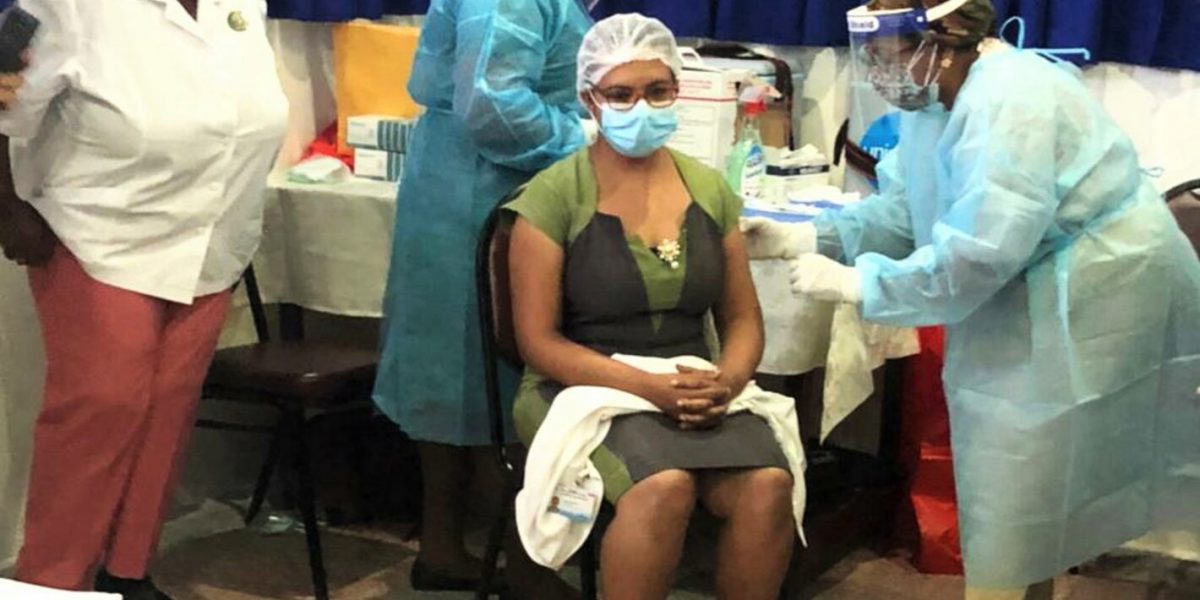The Caribbean’s road to recovery from the economic effects of COVID-19 could be a long and testing trek particularly for countries whose economies are hinged to a tourism industry battered by the ravages of the COVID-19 pandemic, the International Monetary Fund (IMF) says in its most recent “Country Focus” on the Caribbean, released last week.
Now seemingly better positioned to assess the economic consequences of the pandemic for the various countries in the region, the Fund says that countries that are heavily dependent on tourism are now at risk of becoming COVID-19 “long-haulers” insofar as economic recovery is concerned.
“Much the same as some patients could suffer from lingering illnesses long after the coronavirus infection has passed, the pandemic’s economic fallout might be felt in the region long after the health emergency is controlled,” the Washington-based financial institution says in its recent “Country Focus.” The reason for this, it says, has to do with the fact that most countries in the region rely on tourism for generating income and providing employment.
 The ‘numbers’ as far as the impact of the pandemic on the region is concerned tell their own story, the Fund says. The pandemic has seen hotel stays diminishing by 70 per cent and cruise ship travel “completely halted,” shrinking the economies of the tourism dependent countries by 9.8 per cent last year. However, it asserts that commodity exporters in the region, specifically in Guyana, Suriname, and Trinidad and Tobago, were “less affected” and saw what it described as “a mild contraction of 0.2 percent.”
The ‘numbers’ as far as the impact of the pandemic on the region is concerned tell their own story, the Fund says. The pandemic has seen hotel stays diminishing by 70 per cent and cruise ship travel “completely halted,” shrinking the economies of the tourism dependent countries by 9.8 per cent last year. However, it asserts that commodity exporters in the region, specifically in Guyana, Suriname, and Trinidad and Tobago, were “less affected” and saw what it described as “a mild contraction of 0.2 percent.”
The IMF says that while most countries in the region had managed, at the outset, to contain the virus’ spread and even reopen to international travelers in the second half of 2020, renewed waves of infections and travel restrictions, particularly from Canada, the UK, and the USA, had “put a much-hoped-for tourism rebound in check.” It says that the strangling of the tourism industry may lead to “significant long-term scarring,” manifested in loss of jobs affecting mostly young people, women, and less-educated workers. These circumstances, it adds, are likely to increase poverty and inequality and precipitate closings and bankruptcies of key employment providers including “hotels, resorts, and associated tourism services, such as restaurants, shops and tour operators.”
The IMF’s assessment also alludes to the likelihood of fewer flights to and within the region, as airlines struggle to recover lost global market share, On top of these challenges, the Fund says, the region also faces “the ever present risk of natural disasters.”
Spending on treatment, testing, contact tracing, and vaccine access, the Fund says, is likely to be challenging for the region in circumstances where protecting lives and livelihoods remains the priority and must be pursued in order to “limit the economic scarring.”
Worryingly, the Fund notes that “coverage is still low” in the region given what in many instances are “the logistical challenges and the lack of economies of scale at the national level.” Accordingly, it recommends strong regional collaboration as the “key to ensure efficient vaccine distribution.”
Meanwhile, the Fund is recommending continued financial support for the region, including measures to safeguard financial stability until recovery is entrenched.
And in order to create space for such support and to rebuild buffers, the IMF is urging Caribbean governments to accelerate progress on strengthening fiscal policy frameworks. It says that the extension of the G20’s Debt Service Suspension Initiative until June 2021 “provides some relief for countries with large borrowing needs and debt sustainability concerns.”
The Report also says that securing additional IMF financial support early on could help smooth adjustment by “bridging near-term financing gaps; catalyze additional international resources; provide a macroeconomic stability anchor; and support deeper reforms that deliver sustainable and inclusive growth.”









